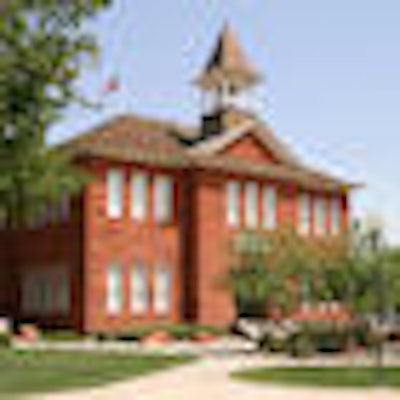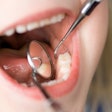
The conflict over whether dentistry should be practiced in Louisiana schools -- one of the hottest topics for the state Legislature last year -- has flared up again. Lawmakers are now so impatient with the issue they are threatening to fire the entire Louisiana State Board of Dentistry.
The state Senate is expected this week to take up a House of Representatives bill setting a deadline of January 1, 2011, for the board to pass new rules for mobile dentistry, under penalty of dismissal. "If they can't get it done, we need some new people," the bill's author, Rep. Fred Mills (D-St. Martinville), told DrBicuspid.com.
“Basically the dental association is throwing the board under the bus because they don't like the way we voted.”
— Barry Ogden, Louisiana State Board
of Dentistry
While the rules would also affect dentists with operatories in vans, the controversy has centered on those who set up temporary operatories on school grounds.
It's not that the board has ignored the issue. After months of study, the board published draft rules in September 2009, but the school dentists objected to a rule requiring them to speak to guardians, in addition to getting written consent, before treating children.
The Federal Trade Commission (FTC) weighed in on the side of the school dentists. That led the board to draft new rules. This time the Louisiana Dental Association (LDA) has objected, raising the possibility the whole process could drag into next year.
"We have been pulled like a rubber band between the dental association and the FTC," Barry Ogden, the board's executive director, told DrBicuspid.com. He painted a dire picture of the consequences if the new legislation forces the board to dissolve. Dentists could not renew their licenses or hospital privileges until a new board is seated. Dentists who break rules could escape punishment until then as well. "It's just amazing how cavalierly they play with our profession," he said.
In a June 3 hearing, the Senate Health and Welfare Committee voted in favor of the bill setting the January 1, 2011, deadline for the new rules but stripped out the clause that would dismiss the board. The bill will have to pass the full Senate, then be reconciled with the House version and signed by Gov. Bobby Jindal to become law.
The LDA's plan
The dispute began with conflicting visions of the best way to help the state's poorest children. Should dentists set up temporary clinics on school grounds? Or should they focus only on getting kids to their offices?
Most the 776,070 children in the state who are eligible for Medicaid have not seen a dentist in the past year, and most dentists in the state don't take Medicaid patients. As a first step toward helping these kids, the Legislature boosted reimbursement for dentists who take Medicaid patients from 30% to 70% of usual and customary fees.
That has succeeded in raising the number of dentists willing to treat these patients from 250 in 2005 to 740 in 2009. And it raised the percentage of Medicaid children who have seen a dentist in the past year from 30.8% to 38.3% over the same period.
"I would love to see a day when 100% of Louisiana dentists would take Medicaid patients," said Claudia Cavallino, D.D.S., a pediatric dentist and member of the LDA Access Committee. "My goal is to remove all the barriers, and we've made huge strides in achieving that."
That was the first phase of a long-term plan the LDA wants to put in place. In its second phase, the organization is informing parents of schoolchildren about the importance of oral health, which dentists accept Medicaid, and how to qualify for government assistance.
If the information isn't enough to get these children to dentists' offices, the organization has secured a commitment from the state to pay for transportation. "We want every indigent child in a dental home," Dr. Cavallino said.
The organization has distributed information in Jefferson Parish with some success, Dr. Cavallino said. The percentage of patients on Medicaid in her own offices in Metairie, LA, and Houma, LA, have gone from about 30% six years ago to more than 50% now.
"I've had parents in my office thanking me," she said. "I've had parents who didn't know what providers were available. I've had parents who didn't know their child should be seen by a dentist. I've had parents who didn't know that dental care was covered by Medicaid."
The mobile vision
While the LDA has proceeded methodically to get these children into their offices, other dentists in the state took their services straight to the children. Chief among them has been Gregory Folse, D.D.S., whose Big Smiles company employs 15 dentists to treat mostly indigent children in school gymnasiums, cafeterias, and libraries.
“It's not a big deal to get a new board.”
— Louisiana State Rep. Fred Mills
He argues that many parents just don't have the wherewithal to get their kids to the dentist, and that busing kids would disrupt their education. "Of course we want them to fit into our model," he said. "We want them in our offices, but many of them are not going to make it in the door."
That approach last year alarmed some of the state's more conventional dentists, who worried that mobile dentists would skim off the most easily reimbursable Medicaid procedures. They argued that treating kids in school was not sanitary. A bill supported by the LDA, which would have banned dentistry in schools, stimulated hours of debate in both houses of the Legislature, which finally watered it down to a demand that the board promulgate new rules.
But Dr. Folse's coalition of school dentists, the FTC, and the Louisiana Primary Care Association, among others, objected to a clause that would require school dentists to talk to patients' guardians -- on the phone or in person -- before treatment, in addition to getting written consent.
Stationary dental offices, by contrast, have to get written consent, but don't have to talk directly to the guardians. "You're cutting out 40% to 50% of your patient population if you require that," Dr. Folse said. "The most vulnerable kids are the ones whose parents you can't get in touch with."
In addition, the school dentists objected to a rule that would let the dental board inspect their operations without prior notice. By contrast, inspectors must give stationary dentists 48-hours notice. And they didn't like a rule requiring the school dentists to tell guardians that if a child already has a dentist, the child should stick with that dentist.
The FTC argued that these provisions were anticompetitive because they give stationary dentists an edge over mobile ones.
What's next?
Asked to comment, LDA Executive Director Ward Blackwell stated in an e-mail, "The LDA believes parental consultation and involvement are crucial to maintaining the prevailing, acceptable standard of care in both mobile practices and traditional private practice, and the most recent version of the State Board of Dentistry's proposed rules for mobile dentistry appear inadequate in that regard."
Blackwell said he could not comment on why a different standard of consent should apply to different types of operatories. And Dr. Cavallino isn't sure how to address the question of consent for children who might, under the LDA plan, be bused from schools to dental offices. "As far as I know, that has not been worked out," she said.
The current draft of the new regulations requires only written, not verbal, consent from guardians, but still allows unannounced inspections and requires the school dentists to tell parents their kids should stick to the dentists they already have.
Ogden sees political maneuvering behind the bill that passed unanimously in the House. The current rules, published in the May 20 Louisiana Register, take effect August 20, but he predicted the LDA will demand a legislative review of the new rules, which could set back the rule-making process. The process takes 100 days to complete because the draft rules must be published for public comment and that might push the board past the January 1 deadline.
The LDA wants to get the board dismissed in hopes that a new board will pass rules it likes better, Ogden said in the June 3 hearing. "Basically the dental association is throwing the board under the bus because they don't like the way we voted," he said.
Mills said he just wanted to put pressure on the board to work faster. "It's not a big deal to appoint a new board," he said.
But getting new board members wouldn't be a quick process, Ogden said. He would have to travel to the state's nine districts to organize nominating meetings from which he would collect names, along with five other types of nominations to submit to the governor. Even if he could organize a new board quickly, it would take him months to orient the members to the board's procedures and years before the new board could match the current board's level of experience.
"I don't think we can do a good job if I have to train 14 rookies in a very short period of time," Ogden said. "We are caught as pawns in the middle of a game."
Copyright © 2010 DrBicuspid.com



















